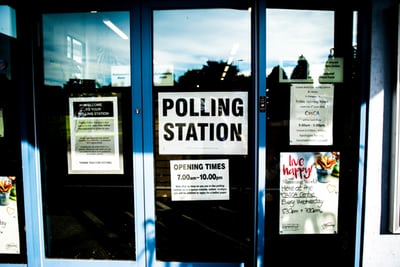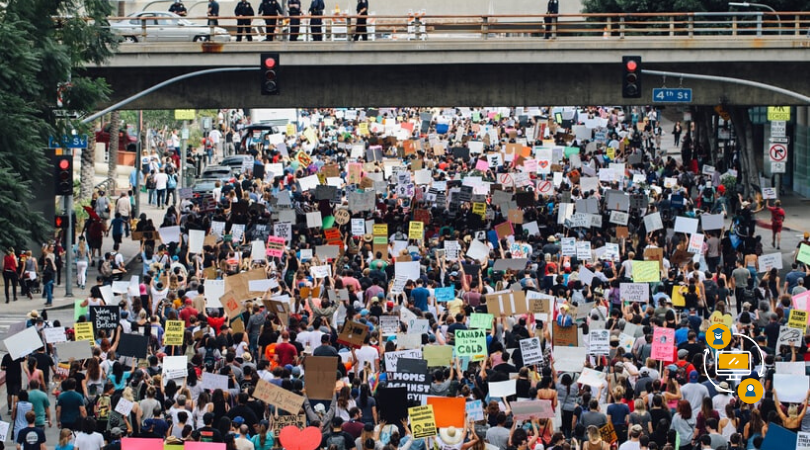The next UK general election will be on December 12th this year. Here’s how to get involved in the voting.
How does it work?
UK elections run on a system called First Past The Post. It sounds super complicated, but its easy to understand when broken down.
There are 650 constituencies in the UK – you vote in the one you live in. In the first instance, you vote for the individual you want to be your local MP. The candidate with the most votes becomes the MP for that area. This person will represent you and your area in Parliament, meaning they’re your point of contact for issues in your community.
But – this also plays a role in deciding who runs the country. Each MP represents a political party, and if one party gets around 326 of their representatives elected, they then hold the majority of seats in Parliament, and will form the Government. If no party wins that majority, then they make deals to work together in order to achieve it – this is a coalition Government.

A step by step to voting
For lots of us, this could be our first time voting. But its not as daunting as it seems.
1. First things first, check you’re eligible to vote.
2. Then, register to vote. The deadline for registering to vote in this election is 26th November, (or, if you’re in Norther Ireland the 21st) so if you’re not already on the electoral roll then get on it! You can register here.
3. Once registered, you’ll recieve a polling card by post that will tell you your closest polling station.
4. On voting day, head to the polling station between 7 am and 10 pm. If you’re unsure, your ballot paper will tell you how to cast your vote.

Top Tips and knowing your rights:
- Students who live away from home during term time can register in both constituencies – student address and home address. For local elections, you can vote in both areas. However, for general elections you’ll need to choose one.
- There’s been conversations around needing photo ID in order to coast your vote on election day. Whilst this isn’t a steadfast rule, I’ll be taking mine just in case!
- If you’re eligible to vote, you’re eligible to vote by post (you don’t need to give a reason).
- If you’re in employment, your employer is required to give you time off to vote if you ask for it.
Choosing who to vote for
My biggest piece of advice here is – know all of your options inside and out. Don’t vote based on what your friends are doing or what your Dad tells you to. Your vote is far too important to go on a whim. Read up on each party’s manifesto and decide which you most identify with. It’s also best practise to vote for the party, rather than the party leader – but people don’t always follow this.
Secondly, remember the election isn’t just about Brexit. It’s obviously a very big issue at the minute, but whichever party wins the election will be making decisions on other issues too – everything from the NHS to tuition fees to police funding. Think about which issues are most important to you, and see which parties prioritise them.
Keep your eyes peeled next week for all the reasons why you should bother voting!

You might also like:
